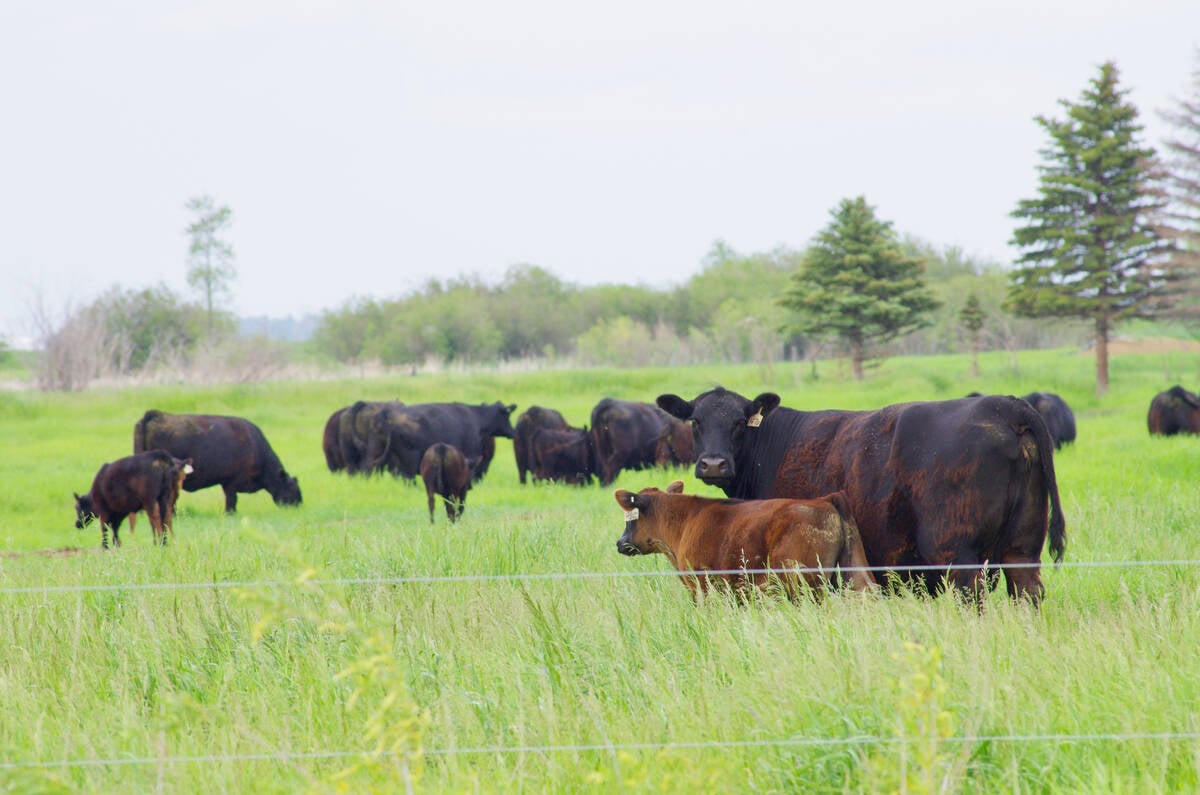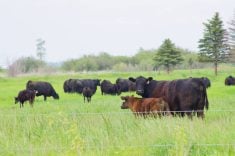Arbitrary, irrational regulations biased toward large-scale industrial operators are the biggest obstacle facing the development of local food systems and profitable small farms, says Joel Salatin, the owner of Polyface Farm in Virginia.
The author of Everything I Want to Do is Illegal urged farmers to come up with creative ways to skirt the rules.
Forbidden from raising chickens without quota? Presell 100-bird lots of chicks to customers, then “custom raise” them.
Can’t butcher beef on the farm and sell it uninspected? One lady in Michigan rents a square metre of land to each of her customers, he said, then kills each animal and cuts it up on their spot because it’s legal to slaughter meat on your own rented land in that state.
Read Also

Tick research from the University of Manitoba focuses on insects and testing
Manitoba researchers are looking into the effects of tick and fly disease in cattle.
“All of us just need to go out and do this and run them ragged. The inspectors will all drop dead of heart attacks and the government won’t be able to replace them,” he said. “We’ll just take over the food system by proxy.”
A keynote speaker at the recent Manitoba Grazing School, Salatin has developed a “beyond organic” business model for locally based marketing that grosses $800,000 in sales a year on a land base of 800 acres.
The self-described Christian-libertarian-environmentalist-capitalist’s farm serves an e-mail managed buying club that sends a bus packed with coolers eight times a year to 15 urban rendezvous points serving 1,200 families. Cash is exchanged for a variety of farm produce from beef to pork, poultry and eggs.
With no advertising budget, apart from a website, Salatin’s business taps into existing networks of city dwellers. As an incentive, customers who sign up others are given discounts in exchange for referrals.
“It’s the ultimate under-the-radar thing,” he said.
“We drive up, take the contraband out of our coolers and put it in their coolers. It’s like a drug deal. We’re heading out of Dodge in 30 minutes with an empty van and pockets stuffed full of cash. It’s the coolest thing.”
To assure the quality of his produce, customers are encouraged to bring their families to visit his well-kept, “aromatically and aesthetically pleasing” free-range farming operation at any time.
Fear of bacteria and pathogens in unprocessed, uninspected food is misplaced, he said, because each human being carries around with them an estimated three trillion intestinal flora.
Salatin noted that with the exception of items like bananas and coffee, a walk through the local supermarket quickly shows the vast array of products that could be produced locally.
The reason that isn’t happening is due to the industrialization of the food system, with its emphasis on continuous growth and economies of scale. Smaller operators are not only unable to compete on the basis of cost of production, they are also shut out of markets by arbitrary regulations biased toward massive scale.
“If 20 sows was good, then 80 is better. And we just kept doubling it until now everything is confined and moved around the country 1,500 miles. But nature is beginning to speak,” said Salatin.
“It speaks in these weird Latin squiggly words: campylobacter, lysteria, E. coli, salmonella, BSE… This is nature screaming to us, ‘Enough.’ “
Due to food safety scares, which he argues originate mainly in massive scale, industrial operations, demand for “integrity food” is growing, he said.
Since 9/11, American officials examining the security of the nation’s food supply found that centralized production, processing and long-distance transportation were vulnerable targets for future bioterrorist attacks.
“What’s the opposite of centralized production? Sounds like a whole lot of diversified family farms to me,” he said.
Most importantly, said Salatin, the industrial economy doesn’t satisfy the soul, and the growing slow food movement aims to recapture the experiences of society’s pre-industrial, agrarian roots.
“Everybody’s experience right now, stuck in their Dilbert cubicles, is not very soul-satisfying.”
Salatin said the information economy is now giving way to a yearning for soul and reality that is pushing urbanites toward a local, rural connection.
“One of the biggest societal disasters of industrial farming is that, at least in the U.S., we now have twice as many people in jail as we have farmers,” he said. “And we think this is such a successful culture that we should export it around the world.
“We need sweaty workers. We need young energy and people to know that there is something more to life than just punching buttons on a computer.”
Processing should, ideally, be done on the farm or at least nearby in community abattoirs, he said.
To overcome regulatory hurdles placed on everything from the sale of raw milk, unpasteurized goat cheese and uninspected home-slaughtered poultry and beef, farmers in his state have come up with creative strategies to bend the law.
He knows a cheese maker who gives his production away, posting a sign at the farmers’ market that says donations only.
“They are making way more money by giving it away. People come by and put money in the box even if they don’t buy any because they are incensed that they don’t have the freedom of choice to buy their own food.”
One cheese maker in Minneapolis discovered there are no inspection requirements on fish food.
“So at the farmers market she now sells Swiss fish food, cheddar fish food, colby fish food,” he said.
In Florida, after government agents shut down a local farm-based seller, he got back in business by registering and labelling his products as pet food, not for human consumption.
“He had his milk, cheese and meat licensed as a pet food. Now, within two years, they have had 25 direct market dairies spring up selling ‘pet food.’ “
The food safety regulations are not about safe food, he said, noting that hunters are encouraged to go out and eat wildlife that they have killed and processed themselves in less-than-sterile conditions.
“Folks, it’s not about food safety. It’s about market access,” he said. “We can raise kids on Twinkies and bon-bons, but we can’t give them raw milk.”
















